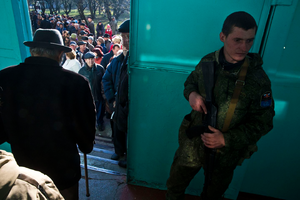Zeed elections, 1688
The elections of 1688 in Zeed are a subject of notorious debate among international and external scholars. While internal scholars recognize the unique situation of the Union and were directly affected, witnessed and partook in the events leading up to and of the elections - external sources claim that the elections were fraudulent.
Setting of Elections
There there were still many violent clashes between the new, legitimate government and factions which opposed the installment of a truly democratic society. Many Front militias were used as protection against potential violence that could have been done towards the people of the new democratic Zeed voting for their first democratically elected leader. Many communities throughout Zeed faced especially difficult circumstances, with some of the worst pro-monarchist violence being directed towards the largely pro-Revolutionary rural communities.
Due to both the ongoing conflicts after the fall of the monarchy, as well as the ravages of The September Revolution and the decade of insurrections leading up to that event - the infrastructure available to Zeed to hold democratic elections was severely limited. Through their ties with the Nationalist &Humanist Party, the Front and the allied Party were able to slowly organize voting stations in major districts throughout Zeed - when not fighting off monarchist incursions.
This did, however, create a new problem - one in the form of a new target for the anti-revolutionary forces - now hiding themselves north of Zeed. Schools, town halls, any relatively well-intact infrastructure and indeed even make-shift facilities were all repurposed for the election to reach as wide a portion of the populace as possible. In the coming days, they would be the target of repeated attacks. Several were destroyed out-right by monarchist forces, necessitating the use of the homes of hero volunteers in the local area.

The Ḡur Republic was required to mobilize many Revolutionary units to ensure that the continued incursions from the stronghold of the pro-monarchist forces in close proximity to their newly formed Republic, did not interfere with the democratic elections.
Many small villages in central southern Zeed, within the Ruthenian Republic were also subject to raids as polls were set up. The mining village of Ugolj was of particular note. On 9 Kanam, a monarchist sect that had been using an abandon coal mine as a stronghold, utilized an improvised explosive device to demolish a school that was being used as a make-shift polling station. This resulted in the deaths of 4 Revolutionary militia soldiers, 8 civilians and the injury of 100-150 more. This became known as the Ugolj Tragedy among Ruthenians, only emboldening pro-Revolutionary sentiments and support for the All-Union Revolutionary Front

Result of Elections
Despite the ongoing Interim Conflicts, on 13 Kanam 1688, Vladim Timoshenko was elected the first First Secretary of the Union by an overwhelming majority of the populace. Even as several internal conflicts raged on in many areas of the Union as the republics solidified themselves, there were reports of nearly a ninety-nine (99) percent voter turnout. With the election of the national and revolutionary hero, the hopes of the solidification of all the republics within a year was becoming more realistic.